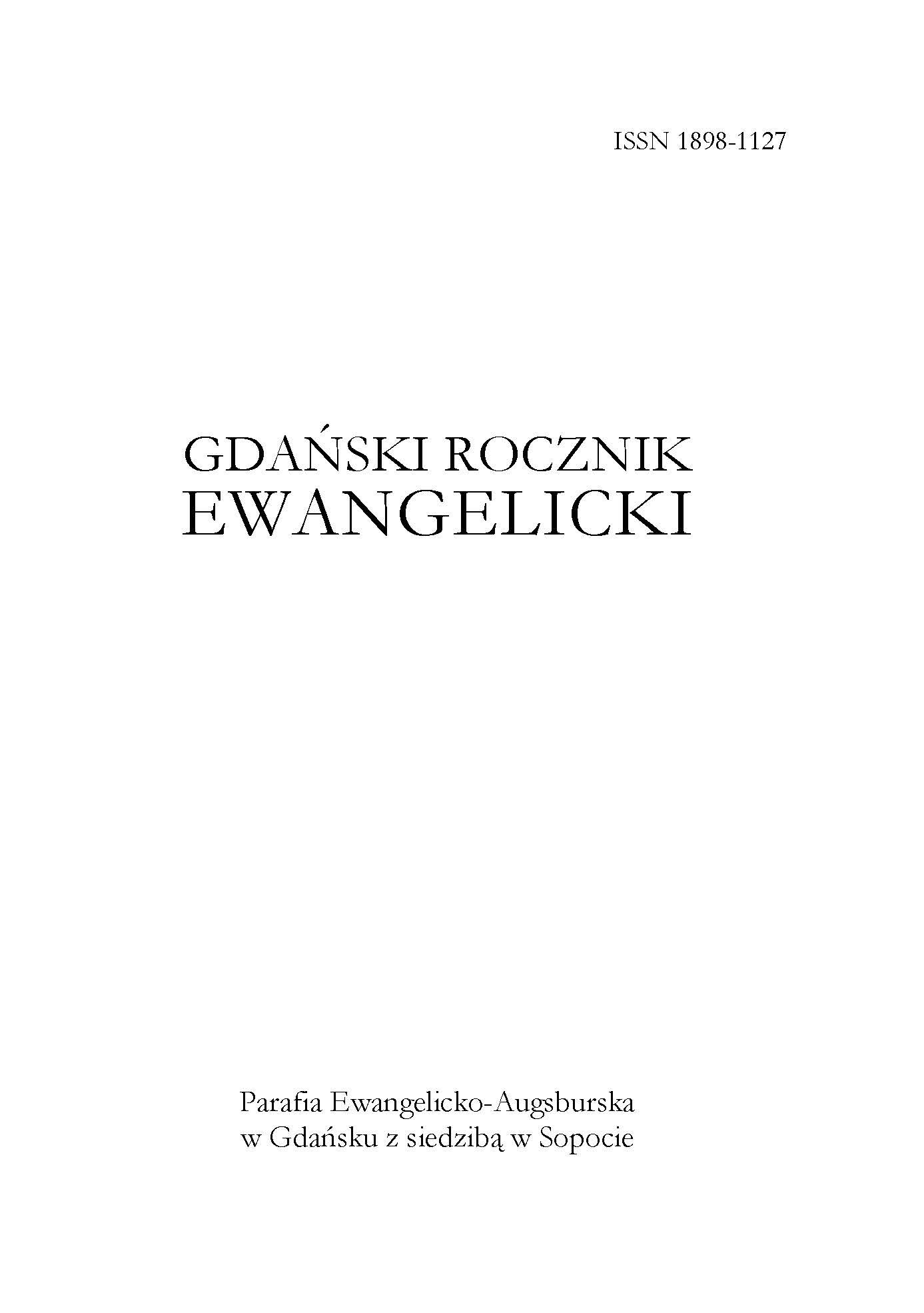Theologie des Herzens – Theologie der Tatsachen.
Zur Lage der Offenbarungstheologie im Jahr
des Reformationsjubiläums
The Theology of Heart – the Theology of Facts. About the
Situation of the Theology of Revelation in the Year of Reformations Jubilee
Author(s): Henning TheißenSubject(s): Christian Theology and Religion, Theology and Religion, Other Christian Denominations
Published by: Parafia Ewangelicko-Augsburska (Luterańska) w Gdańsku-Sopocie
Keywords: Postfactically; Revelations Theology; Reformation Jubilee; Facts
Summary/Abstract: Anniversary of the Reformation begins under „post truth“ conditions in a number of European and overseas countries. The post truth condition (1), which favours emotions over facts, is, however, also a theological issue in that the differentiation between revelation-oriented and subjectivist understandings of God‘s revelation to mankind runs along the same lines of facts and emotions. This problem is discussedin the context of both anniversary of the Reformation and the dogmatic topic of revelation itself.The present reformation anniversary (2) benefits from a general rise in memory culture and theories of memory. It is discussed whether the way in which Luther is presently pictured by church officials is in itself a case of post truth in how Luther‘s late writings against the Jews are rebuked by these churches. It is suggested to judge the historical development of the Reformation churches not according to reception history, but to the cultural effects the Reformation has prompted in various fields of society.Among the many oppositions between a fact-based and an emotion-based approach to the Protestant concept of revelation (3), Melanchthon‘s threefold concept of belief (knowledge, volition, affect) is considered particularly helpful to evaluate the present „post truth“ situation because Melanchthon clearly favours affection over knowledge. The difference of a post truth situation is, however, that a restructuring of affective involvement of people in a given situation is much easier in a world of social media and networks where interaction between virtual and real worlds allows for detaching emotions from facts.In sum (4), theology should evaluate its own possible effects on the present „post truth“ situation and act accordingly by either taking responsibility or entering into a critical debate.
Journal: Gdański Rocznik Ewangelicki
- Issue Year: 2016
- Issue No: 10
- Page Range: 139-157
- Page Count: 19
- Language: German

